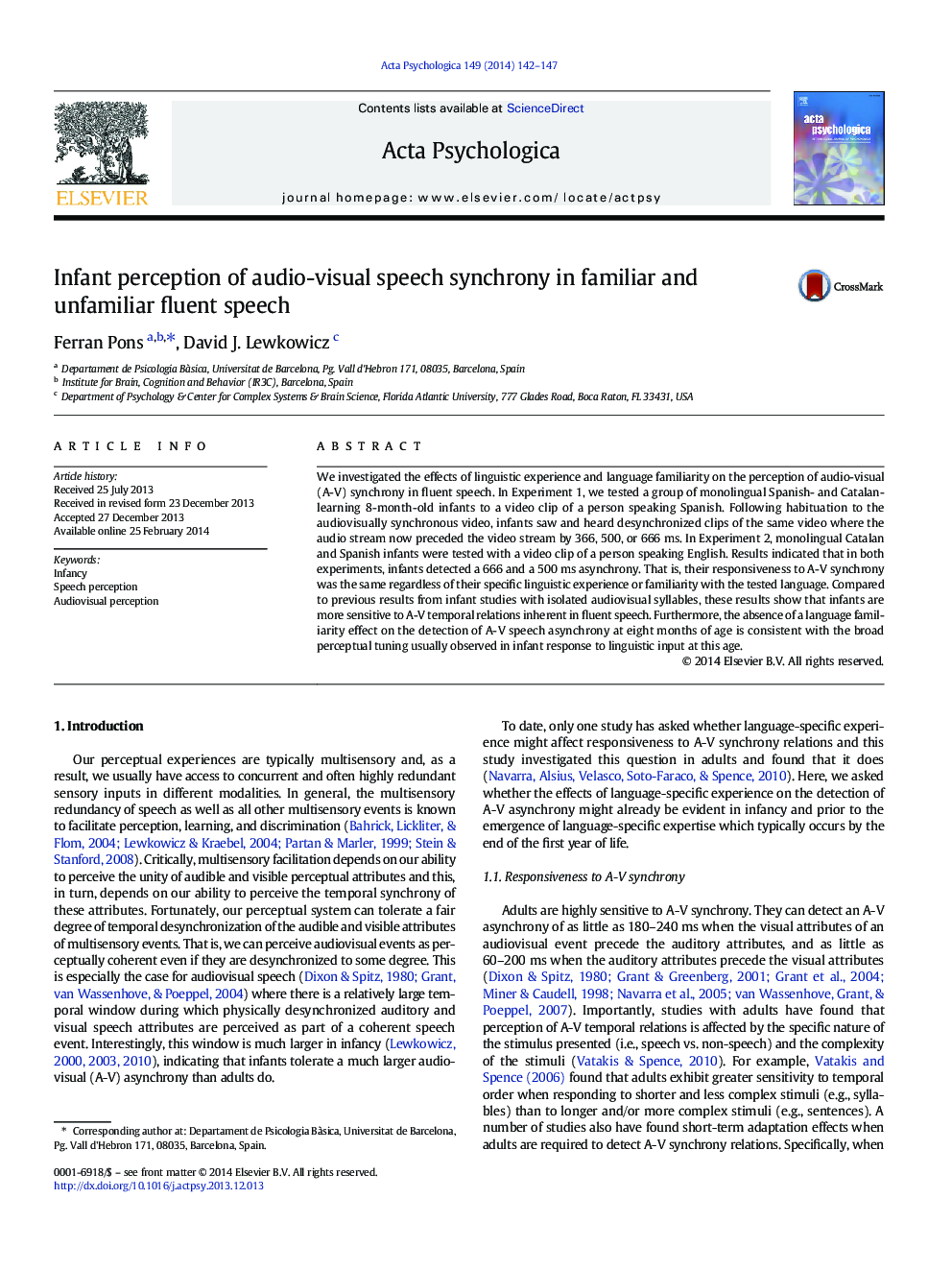| Article ID | Journal | Published Year | Pages | File Type |
|---|---|---|---|---|
| 7277706 | Acta Psychologica | 2014 | 6 Pages |
Abstract
We investigated the effects of linguistic experience and language familiarity on the perception of audio-visual (A-V) synchrony in fluent speech. In Experiment 1, we tested a group of monolingual Spanish- and Catalan-learning 8-month-old infants to a video clip of a person speaking Spanish. Following habituation to the audiovisually synchronous video, infants saw and heard desynchronized clips of the same video where the audio stream now preceded the video stream by 366, 500, or 666Â ms. In Experiment 2, monolingual Catalan and Spanish infants were tested with a video clip of a person speaking English. Results indicated that in both experiments, infants detected a 666 and a 500Â ms asynchrony. That is, their responsiveness to A-V synchrony was the same regardless of their specific linguistic experience or familiarity with the tested language. Compared to previous results from infant studies with isolated audiovisual syllables, these results show that infants are more sensitive to A-V temporal relations inherent in fluent speech. Furthermore, the absence of a language familiarity effect on the detection of A-V speech asynchrony at eight months of age is consistent with the broad perceptual tuning usually observed in infant response to linguistic input at this age.
Related Topics
Life Sciences
Neuroscience
Cognitive Neuroscience
Authors
Ferran Pons, David J. Lewkowicz,
